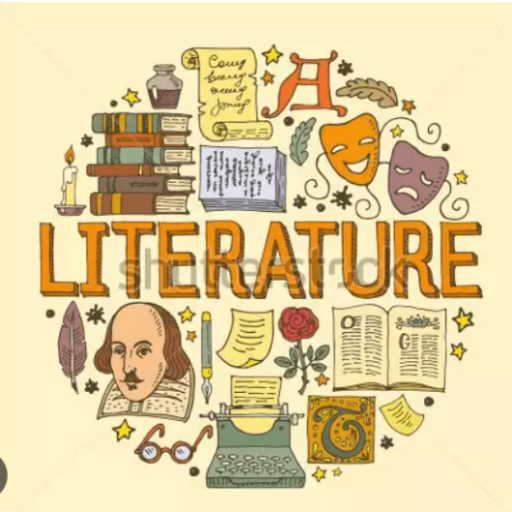Unrequited love has been a recurring theme in the plays of William Shakespeare. Through his masterful storytelling and poetic language, Shakespeare captures the complexities and heartaches of unreciprocated affection.
In this article, we will delve into some of Shakespeare’s most notable plays that explore the theme of unrequited love and examine the profound impact they have had on literature and culture.
Advertisement
Shakespeare Plays Unrequited Love
Romeo and Juliet: The Tragic Tale of Forbidden Love
Romeo and Juliet, one of Shakespeare’s most famous tragedies, serves as a prime example of unrequited love.
Advertisement
The young lovers, Romeo Montague, and Juliet Capulet, find themselves entangled in a family feud that prohibits their love from being fulfilled.
Advertisement
Their love, intense and passionate, becomes a symbol of hope and defiance against the societal constraints that separate them.
Advertisement
The Balcony Scene: A Pinnacle of Longing
In Act II, Scene II of Romeo and Juliet, Shakespeare presents the iconic balcony scene. Juliet, unaware of Romeo’s presence, pours out her heart’s desire into the night, longing for their love to be reciprocated.
This scene beautifully captures the essence of unrequited love through Juliet’s poetic words and her yearning for Romeo’s affection.
The Tragic Ending: Love Cut Short
Despite their profound love for each other, Romeo and Juliet’s story ends in tragedy. Their untimely deaths serve as a poignant reminder of the consequences that unrequited love can bear.
Shakespeare’s portrayal of their love, filled with sacrifice and devotion, continues to resonate with audiences to this day.
Twelfth Night: A Tale of Mistaken Identity and Unrequited Love
Twelfth Night, a comedic play by Shakespeare intertwines the themes of mistaken identity and unrequited love. Viola, disguised as a man named Cesario, falls in love with Duke Orsino.
However, the Duke is infatuated with Olivia, a countess who, in turn, becomes infatuated with Cesario, unaware of Viola’s true identity.
The Love Triangle: A Web of Unrequited Affection
In Twelfth Night, Shakespeare weaves a complex web of unrequited love. Viola loves Orsino, who loves Olivia, who loves Cesario (Viola in disguise).
This intricate love triangle results in a series of comedic and heartwarming situations, showcasing the pain and humor that unrequited love can bring.
Malvolio’s Unrequited Love: The Folly of Pursuit
In addition to the main love triangle, Shakespeare explores another form of unrequited love through the character of Malvolio. He is a steward in Olivia’s household, who harbors romantic feelings for her.
However, Olivia does not reciprocate his affections, leading to a series of misfortunes and humiliation for Malvolio.
Much Ado About Nothing: Love, Deception, and Unrequited Longing
Much Ado About Nothing, a delightful comedy by Shakespeare, showcases the theme of unrequited love in a different light. The play explores the complexities of relationships, the destructive power of deception, and the yearning for love that remains unfulfilled.
Benedick and Beatrice: A Battle of Wits and Hearts
Benedick and Beatrice, two witty and sharp-tongued characters in Much Ado About Nothing, engage in a playful war of words.
Despite their constant banter, it becomes evident that their witty exchanges mask a deep-rooted affection for each other.
Their unrequited love is tinged with pride and a fear of vulnerability, adding depth to their characters.
Claudio and Hero: Love Tested by Deception
Another layer of unrequited love is presented through the characters of Claudio and Hero. Claudio is deceived into believing that Hero has been unfaithful, leading to the cancellation of their wedding.
This misunderstanding highlights the pain of unrequited love caused by false accusations and shattered trust.
Conclusion: Shakespeare Plays Unrequited Love
Shakespeare’s plays are a treasure trove of exploration into the complexities of human emotions, and unrequited love is a prominent theme that pervades many of his works.
From the tragic tale of Romeo and Juliet to the comedic twists of Twelfth Night and Much Ado About Nothing, Shakespeare masterfully captures the essence of unreciprocated affection.
His profound insights into the human heart and his ability to craft unforgettable characters have solidified his plays as timeless classics that continue to captivate and move audiences to this day.
Frequently Asked Questions
Aside from Romeo and Juliet, Twelfth Night, and Much Ado About Nothing, other plays like “As You Like It” and “Antony and Cleopatra” also delve into the theme of unrequited love.
Unrequited love allowed Shakespeare to explore the depths of human emotions, showcase the complexities of relationships, and engage the audience’s empathy and sympathy.
Shakespeare’s exploration of unrequited love set a precedent for future writers, influencing the development of tragic and comedic love stories in literature.
Shakespeare’s profound understanding of human nature, his poetic language, and his ability to capture the universal experience of unrequited love make his plays resonate across generations.
While many of Shakespeare’s plays featuring unrequited love end tragically, there are instances where love is eventually reciprocated, such as in “A Midsummer Night’s Dream.”
Absolutely! The themes of unrequited love, longing, and heartache are timeless and continue to resonate with modern audiences.

